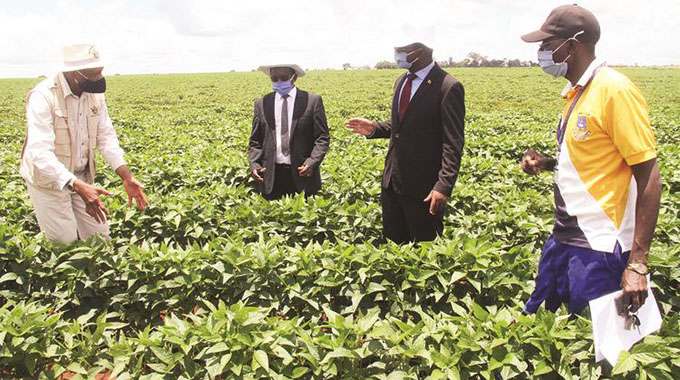
Lands, Agriculture, Fisheries, Water, and Rural Resettlement ministry will on July 28, launch the new curriculum for agriculture colleges.
Titled Agriculture Education for Development 5.0 (AE4D 5.0), the new curriculum was developed by the ministry in consultation with diverse agriculture stakeholders.
The curriculum development process was supported by the European Union (EU) funded Zimbabwe Agriculture Knowledge and Innovation Systems (ZAKIS) project and the Food and Agriculture Organization (FAO).
The acting director in the ministry’s Department of Agriculture Education Mr Jotamu Dondofema said:
“Implementation of the new curriculum is expected to transform the way we train students and in turn the agricultural sector. The curriculum responds to pillar three of the Agriculture and Food Systems Transformation Strategy (AFSTS) which seeks to institutionalise an efficient agricultural knowledge, technology, and innovation system. This, in turn, feeds into National Development Strategy 1 (NDS1) and Vision 2030.”
He said that the curriculum will contribute towards the attainment of AFSTS and NDS1 through a strong emphasis on practical training, research, entrepreneurship, and innovation.
“The AE4D 5.0 will provide students, farmers and scientists with the right attitude, knowledge and skills in the practice of agriculture. It will create a pool of skilled, enterprising, competent and innovative personnel that is capable of meeting the diverse and changing needs of our agricultural sector.”
The curriculum introduces new courses which were missing in the old curriculum. These include research, innovation, and entrepreneurship.
“The curriculum is expected to catalyse transformative agricultural development by establishing a practical, relevant, market-oriented and farmer-centred education system that provides hands-on experience and exposes students to modern farming practices and technologies.”
ZAKIS and FAO-SAFE are part of the EU funded Zimbabwe Agricultural Growth Programme (ZAGP).
Through a €40 million financial support package from the EU, ZAGP seeks to contribute to the development of a diversified and efficient agriculture sector that promotes inclusive green economic growth.
Its focus is on increasing profitability, building the capacity of farmers, service institutions, and the private sector through increased investment, institutional reforms, and policy alignment.
ZAKIS specifically seeks to improve Zimbabwe’s agriculture sector by enhancing the dissemination of agricultural knowledge and stimulating innovation through strengthening the working links among agricultural education, research, and extension services.
The project is implemented by a consortium of local and international agricultural specialist non-governmental organisations (NGOs) comprising Welthungerhilfe (WHH), International Crops Research Institute for the Semi-Arid Tropics (ICRISAT), Community Technology Development Organisation (CTDO), and Sustainable Agriculture Technology (SAT).
